-
Making Stuff
I’ve mentioned toys here before, and I likely will again. After all, this is about what I did in yesteryear, and a lot of that involved playing with toys. In this segment, however, I am going to focus on a specific type of toy—the kind that you use to make something with.
I’m not around kids much these days, so I can’t say for certain that these types of toys have disappeared, but the anecdotal evidence I have gathered suggests they have, or at least that they have been greatly reduced.
The first toy of this type I recall was a set of wooden building blocks. They came in a sack. You dumped them on the floor, and you built something out of them. It may be my imagination, but I don’t see much opportunity for that sort of simple play anymore, nor for the next set of toys I recall: Tinker Toys, Lincoln Logs, and an Erector Set.
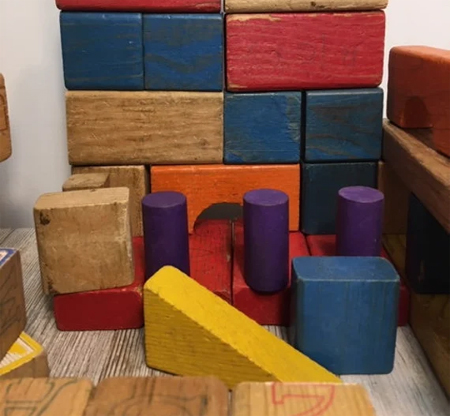
Nothing fancy, just wooden blocks. The Erector Set comes first, because that’s what I recall playing with next. I was very young at the time, but able to deal with the tiny nuts and bolts (probably because I had tiny hands) and spent many an afternoon making erections. By the by, they called those sets Meccano in Britain, because they couldn’t say “Erection” without giggling. As a small boy, I don’t recall having a problem with that.
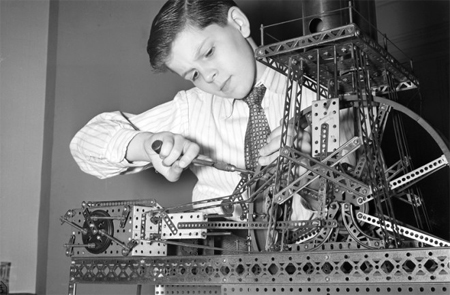
Back then, we wore a shirt and tie when we played,
and we didn’t giggle at the word, “Erection.”My set of Lincoln Logs was around at the same time, and, like the wooden blocks, you just dumped the pieces on the floor and built something with them. My set was so old that the logs were square, and those plastic triangles in the picture didn’t exist. To make an angled roof, you needed to set smaller and smaller logs on top of one another.
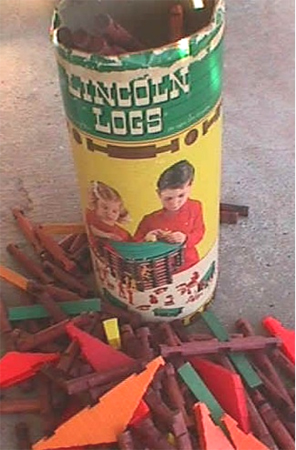
Lincoln Logs. Apparently, we let
girls play with them.The Tinker Toys overlapped the previous two. I recall having them at the same time, but playing with them after the Erector Set disappeared and the Lincoln Logs were set aside. The Tinker Toys were sort of a cross between the two, in that you could build tall structures, as with the Erector Set, and they were easy to put together, like the Lincoln Logs.
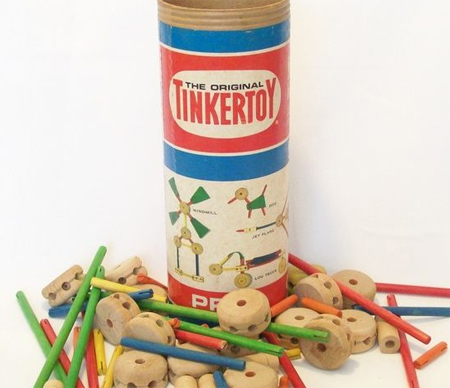
Tinker Toys. Easier than an Erector Set,
more versatile than Lincoln Logs.Next up was the Spirograph. It was a set of cogs in various sizes and shapes, with holes for a pen tip in them, that you could move around one against the other and make designs. It sounds lame, but it made some spectacular drawings.
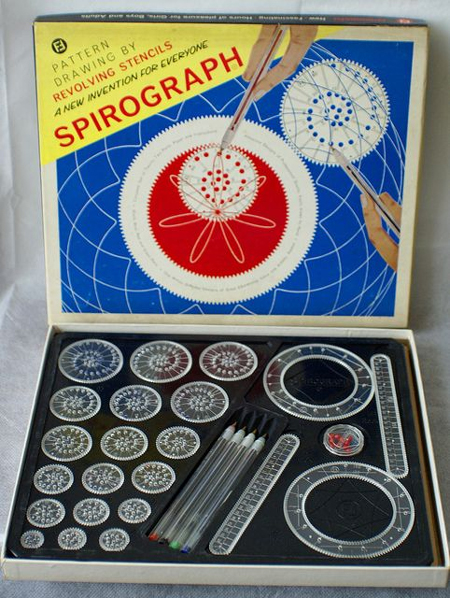
From this… 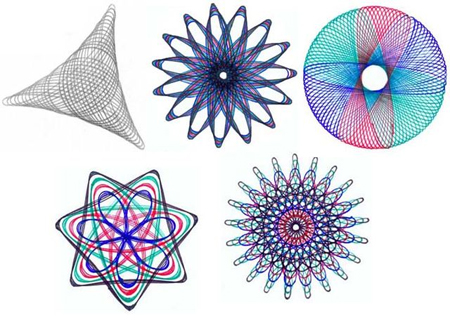
…to this. As the 1970s approached we discovered electricity, and heat. In addition to a wood burner, I had a Creepy Crawler maker, and some shrinky things.
The wood burner was a sort of electric pen, where the nib got hot enough to burn wood. What could possibly go wrong?
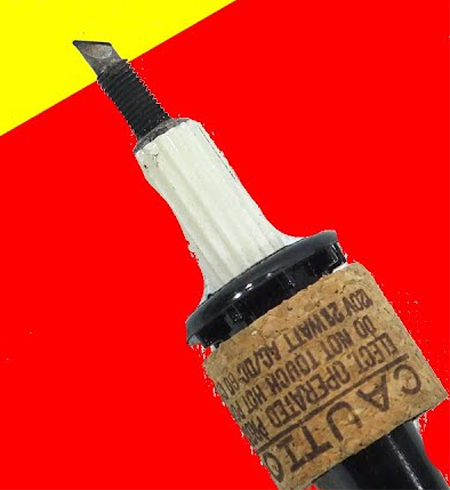
Seriously, what could possibly go wrong? The Creepy Crawler set was a small electric hob with molds in the shape of spiders and scorpions and such. You used a special liquid that came with the set to fill the molds, then cooked them on the electric plate until the liquid jelled. Once cooled, you could peel them out and have soft rubber insects. The fun was in making them; I don’t recall doing anything with the finished product.
Likewise, the shrinky things. I believe they used to be called Shrinky Dinks, and I think you can still buy them. They are simply a sheet of acetate—I have a roll of that sitting on my desk in front of me—that you would draw on, cut out, and bake in your mom’s oven. When heated, the picture would shrink and thicken, making the large, flimsy sheet into a much smaller, thicker, and stiff piece of plastic that you could make naff stuff—like key holders or badges—out of.
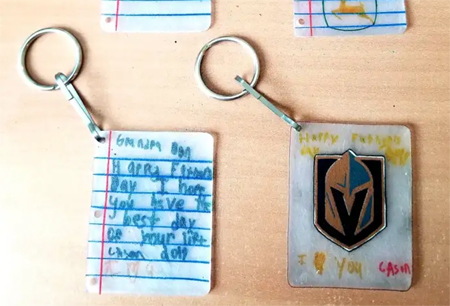
The sort of naff stuff you made with Shrinky Dinks. The final item, and the one that proves my point, is Lego. Although it had been around for years, I didn’t have any until I was a bit older. The set I had was typical of the time: a container full of brightly colored, plastic blocks that you’d dump on the floor and build stuff out of. These days, you can’t seem to be able to buy a sack of Lego. You need to buy a set—something to make the Eiffel Tower or Millennium Falcon out of—for an exorbitant price.
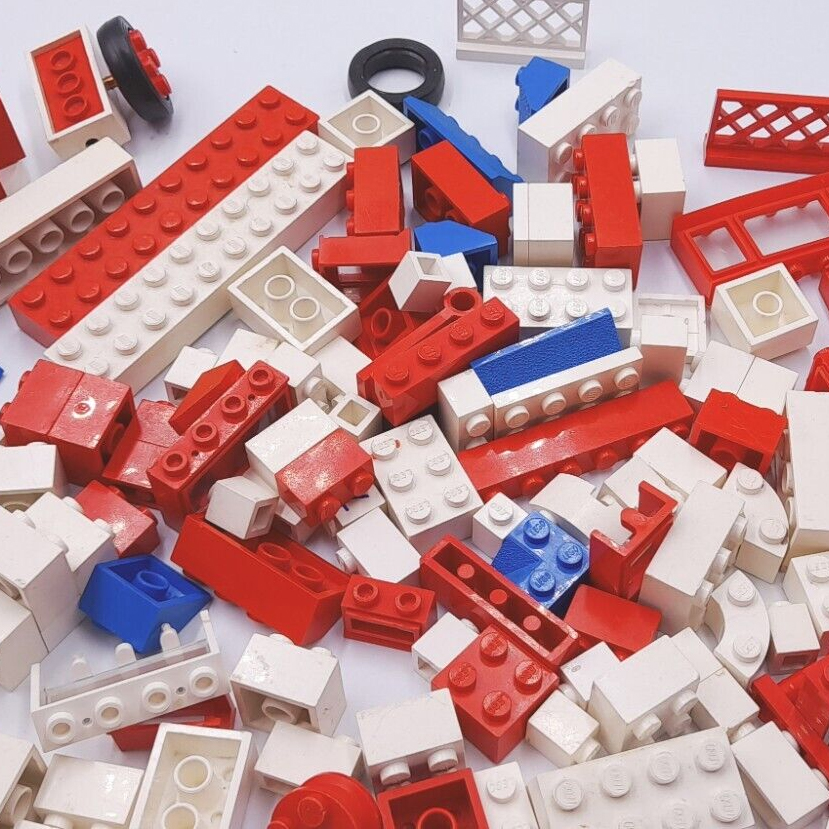
Lego®, back in the good old days. 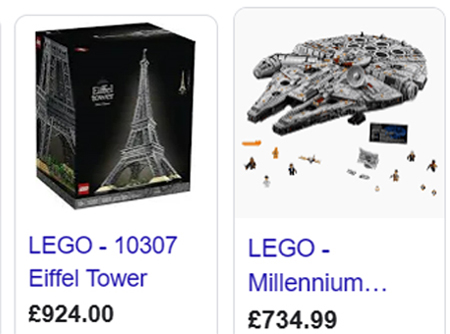
Lego® now. Now, I’m not going off on a “Kids today don’t know they’re born” jag, I’m just saying: when I was young, we made up stories and built things, and even my own children, when they played, they acted out snippets of cartoons and shows they had seen rather than make up their own stories, and nowadays it appears that anything you buy that you can make something out of is designed to make a specific item, and both of these things take imagination out of play, which, I believe, is an important part—if not the main point—of play.